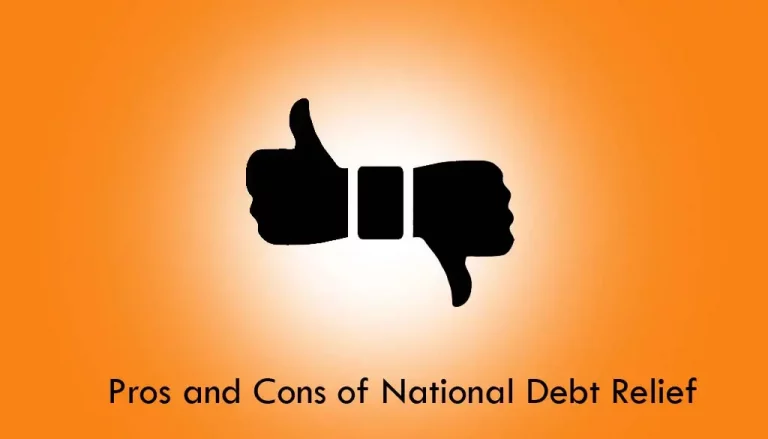So you’re thinking about pros and cons of National Debt Relief? It’s a big decision, and you want to make sure you’re making the right choice.
Well, that’s where we come in. In this article, we’re going to take a look at the pros and cons of National Debt Relief so that you can make an informed decision.
We’ll start with the pros and cons of National Debt Relief can help you get out of debt faster and save you money on interest payments. It can also help you improve your credit score, which can open up new opportunities for you in the future.
Now for the pros and cons of national debt relief can be expensive, and it can also have a negative impact on your credit score. So what do you think? Is national debt relief right for you?
Pros and Cons of National Debt Relief
What Is National Debt Relief? So what is National Debt Relief? It’s a program that helps people consolidate their debt and lower their monthly payments. It’s been around for a while, and it’s helped millions of people get out of debt.
There are a lot of pros to using National Debt Relief. For starters, they have a team of experts who can help you negotiate lower interest rates and lower your monthly payments. They also work with all the major credit-rating agencies, so they can help you improve your credit score.
But there are also some cons to using National Debt Relief. For starters, their fees can be pretty high, and they’re not available in all states. So it’s important to do your research before you decide if National Debt Relief is the right program for you.
Pros of National Debt Relief
You may be considering national debt relief as an option to get your finances back on track. And that’s a smart move—national debt relief can provide some serious benefits.
For starters, national debt relief can help you get out of debt faster. It can also help you reduce your monthly payments, so you’re not struggling to keep up with your bills. Plus, it can protect your credit score, which is important if you’re planning on buying a house or car in the near future.
So what are the cons of national debt relief? Well, it’s not for everyone. You may have to pay taxes on the forgiven debt, and there’s always the risk that the program could be canceled or changed at any time.
Cons of National Debt Relief
So what are the cons of using national debt relief to get out of debt?
Well, first of all, it can be expensive. The fees for national debt relief can be high, and they can add up pretty quickly.
Second of all, it can take a long time to get your debt relief order processed. This means you could be stuck waiting for months before you see any results.
And finally, there’s always the risk that you could end up getting scammed. There are a lot of companies out there that are only interested in taking your money, and they won’t help you with your debt at all.
Who Is National Debt Relief For?
So who is National Debt Relief for? In short, it’s for people who are struggling with overwhelming debt.
If you have more than $10,000 in unsecured debt, then National Debt Relief can help you get back on your feet. They work with your creditors to negotiate a lower interest rate, or a repayment plan that’s more manageable for you.
There are a lot of pros and cons of National Debt Relief. First and foremost, they can save you a lot of money. In some cases, they’ve been able to negotiate interest rates as low as 0%.
They’re also approved by the BBB, and they have a A+ rating. Plus, they’re one of the only debt relief companies that’s licensed in every state. So if you’re considering working with them, know that you’re in good hands.
How Does National Debt Relief Work?
So, how does National Debt Relief work? Essentially, the company acts as a mediator between you and your creditors. They’ll work out a payment plan that’s more manageable for you, and then they’ll negotiate with your creditors on your behalf.
Of course, this all comes at a cost. National Debt Relief charges a fee for their services, which can be anywhere from 20-25% of the total amount you owe. But many people find this to be a worthwhile investment, especially when you consider the alternative (which is declaring bankruptcy).
When it comes to weighing the pros and cons of National Debt Relief, it really depends on your individual situation. But the fact remains that more and more people are turning to this service as a way to get out of debt.
Conclusion: pros and cons of national debt relief
When it comes to national debt relief, there are pros and cons of National Debt Relief to consider.
On the one hand, getting help with your national debt can be incredibly helpful in terms of reducing your monthly payments and getting your finances back on track.
On the other hand, debt relief can be damaging to your credit score and may not be the best solution for everyone.
It’s important to weigh the pros and cons of national debt relief before making a decision, and to consult with a financial advisor if you have any questions.
